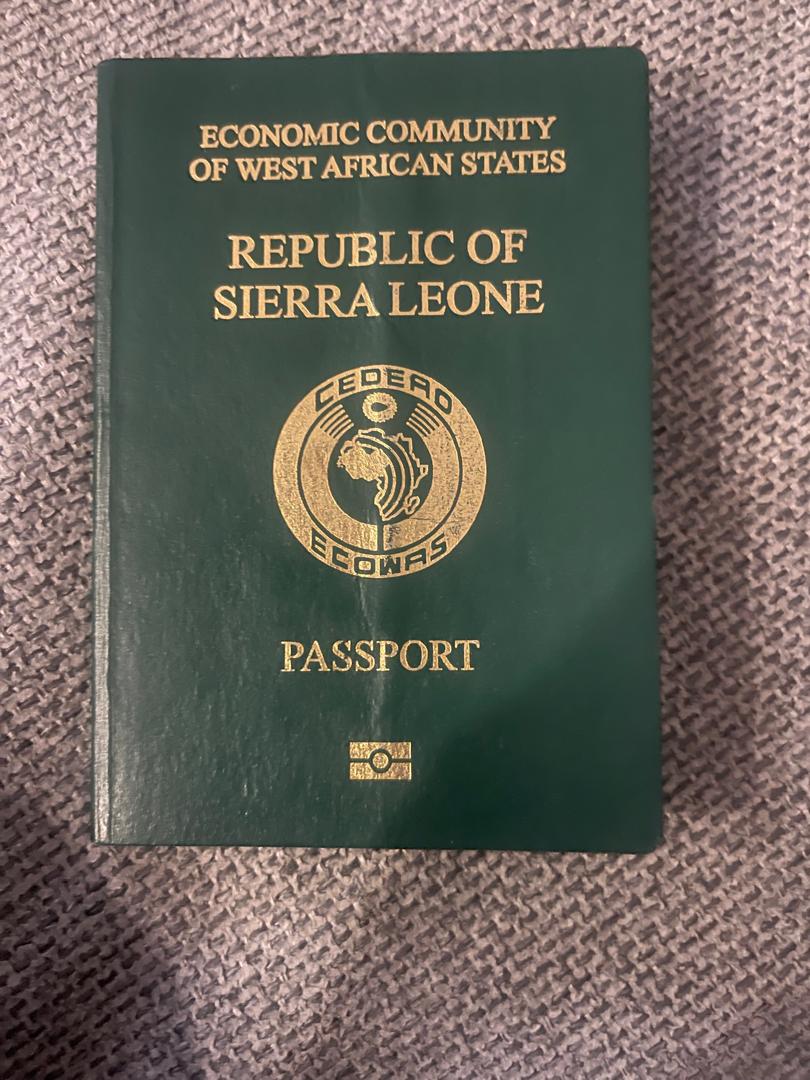Sierra Leone is standing on the edge of an integrity crisis.
A foreign national, reportedly tied to criminal and drug networks, may have obtained a Sierra Leonean diplomatic passport — an act that strikes at the heart of national sovereignty and global credibility.
The Sierra Leone Immigration Department (SLID) has launched an internal investigation, but this is far bigger than immigration paperwork. What is emerging is a pattern — a web of systemic weaknesses, corruption, and complacency that now defines Sierra Leone’s governance under mounting international scrutiny.
This is not the first time the country has been linked to drug trafficking or abuse of diplomatic privilege.
In 2008 — The “Cocaine Plane” scandal shocked the nation when over 700 kilograms of cocaine were discovered aboard a private jet at Lungi International Airport. Despite initial arrests, few senior officials faced real consequences.
Between 2021–2023 — Intermittent reports surfaced of unregistered boats sighted off Sierra Leone’s coastlines, allegedly trafficking narcotics. Law enforcement agencies offered conflicting explanations. Most cases quietly disappeared from public record.
And in 2024 — A major diplomatic embarrassment unfolded when contraband substances were discovered in the official vehicle of Sierra Leone’s former Ambassador to Guinea.
He was promptly dismissed, but months later, no conclusive investigation has been published.
And here is 2025 — The latest allegations: a foreign national linked to organized crime may have acquired a Sierra Leonean diplomatic passport. If verified, this would mean the state’s highest symbols of authority are being compromised — or sold.
And several boats had surfaced on the waters alleged to be stuffed with cocaine and other drugs such as the Killer KUSH.
Of course, one thing is clear ; government officials are the importers and dealers .!
Each of these cases has one thing in common: the absence of accountability. No transparent reports, no visible reforms, and no consequences for systemic failure.
While corruption undermines institutions, Kush, a deadly synthetic drug, is destroying Sierra Leone’s youth. The streets of Freetown, Bo, and Makeni are filled with young men and women lost to addiction — their bodies wrecked by a substance whose source remains suspiciously obscure.
Every official claims to be fighting it; yet production, distribution, and sale continue at an industrial scale. The National Drug Law Enforcement Agency admits being overwhelmed. Rehabilitation centres are underfunded. Parents are desperate.
The question is no longer whether Sierra Leone has a drug problem — it is how much of that problem is being quietly tolerated.
The diplomatic passport scandal is not an isolated breach. It is the logical consequence of years of weak oversight, patronage networks, and a culture of impunity.
If Sierra Leone’s diplomatic passports — once symbols of international respect — are being traded or issued to individuals with criminal ties, the nation risks becoming a conduit for transnational crime.
The government cannot rely on the Immigration Department alone. This demands a multi-agency, transparent, and internationally monitored investigation involving:
The Ministry of Foreign Affairs, to audit all diplomatic passport issuances over the last five years.
The Anti-Corruption Commission (ACC), to probe internal complicity and financial irregularities.
The National Drug Law Enforcement Agency (NDLEA), to trace any links to narcotics networks.
The Office of National Security (ONS), to assess risks to national and regional stability.
Sierra Leone’s name is being dragged into the murky waters of global organized crime.
If credible steps are not taken now, the country could face diplomatic sanctions, investment withdrawal, and travel restrictions that will hurt ordinary citizens most.
The government’s credibility depends on how it handles this crisis.
A whitewashed investigation will only confirm what many already suspect — that corruption has become policy and impunity the rule.
Sierra Leone stands at a crossroads. It can choose to confront corruption head-on or continue down a path of complicity and decay.
Half-measures will not save its reputation.
And Silence will not restore credibility.
Yes , denial will not stop the truth from surfacing.
Until the government acts decisively, the world will view Sierra Leone not as a state under attack — but as one complicit in its own undoing.
By Joe Turay



